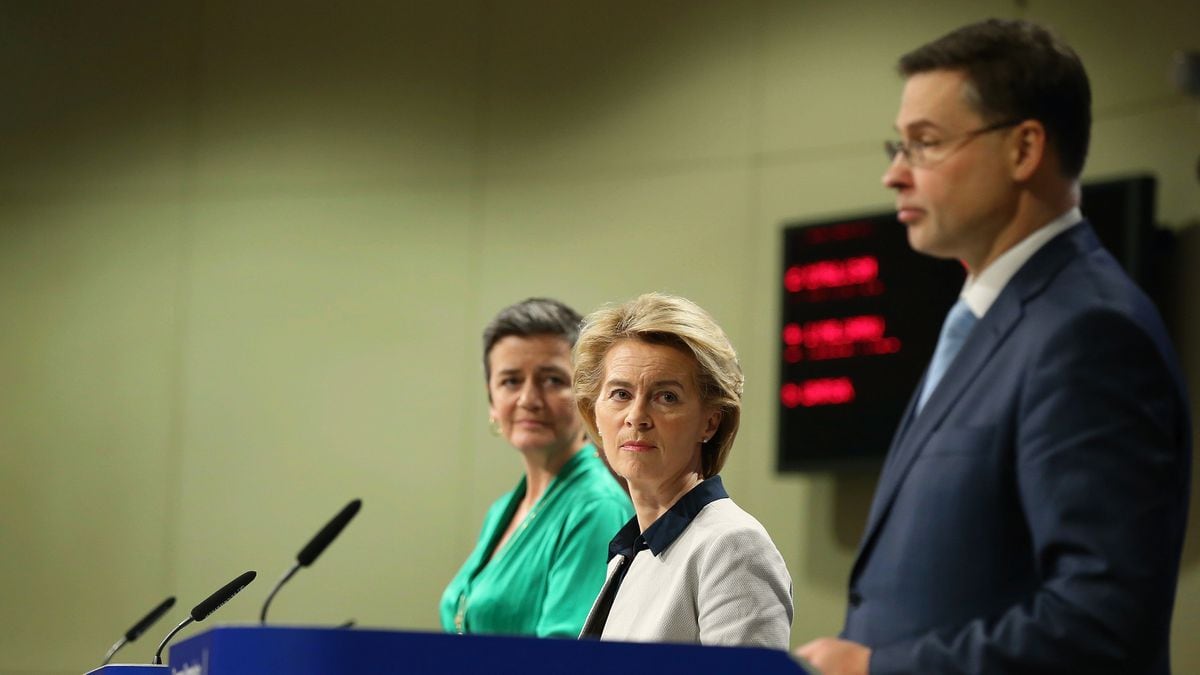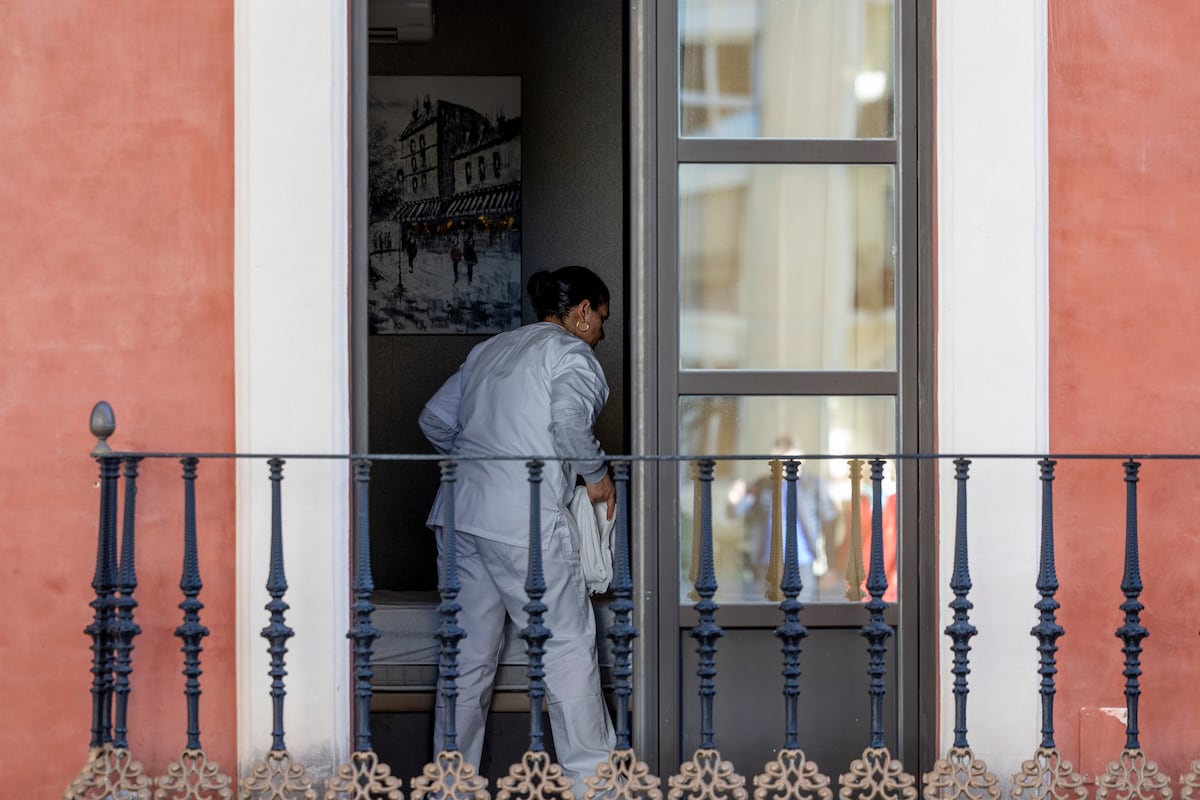Just one month after the deadline for Spain to present the recovery plan with which it aspires to unlock 140,000 million euros, Brussels is showing its teeth.
The European Commission is concerned that the Spanish reform package could derail if the Pedro Sánchez government ends up backing down in aspects that in its opinion provide flexibility such as the priority of company agreements and leaves without attacking temporary status or youth unemployment.
Speaking to EL PAÍS, Vice President Valdis Dombrovskis warns: "A comprehensive and ambitious reform of the labor market is the first priority."
Labor proposes that the sectoral agreement regulates salaries and supplements
Nadia Calviño distances herself from Yolanda Díaz in the labor reform by prioritizing reducing contracts
The European Commission is rarely so clear.
The plan with which Spain must put the reforms and investments with which it wants to transform its economy white on black is one of the most advanced in the EU.
But the fine print matters, a lot.
Brussels is observing with a magnifying glass every step that the Sánchez government takes in the three major reform packages that it has demanded: employment, pensions and market unity.
And after the first stages of negotiations between the Minister of Labor, Yolanda Díaz, and the social agents, the Community Executive fears that Spain will bring them a decaffeinated labor reform.
The Commission is concerned that the Minister of Labor, Yolanda Díaz, has begun the social dialogue with the negotiation on the repeal of the prevalence of company agreements over sectorial ones, as EL PAÍS announced yesterday.
Brussels believes that this measure may reduce flexibility in the labor market.
In particular, the Community Executive believes that this portfolio can bog down the debate on reforms by causing division among social agents.
And that, in the end, Spain ends up presenting a less far-reaching plan.
Dombrovskis presented the Commission's diagnosis of the crisis in Spain, the country that suffered the biggest collapse in the EU.
"The Spanish economy suffers from old structural weaknesses, which the pandemic has made even more visible," says the Commission's economic vice president.
Brussels has therefore decided that Spain is the second largest recipient of aid, only behind Italy.
In total, 140,000 million, of which 72,700 million will be non-refundable grants.
"From that perspective, of course, it is very important that Spain get its plan right," he adds.
Brussels has defended the labor reform of the Executive of Mariano Rajoy.
And while he has not said that it is untouchable, in the annual review of February 2020 he did urge the Sánchez government that "any new measure" to reverse will only be adopted "after having carefully evaluated its potential impact and maintaining the achievements of past reforms ”.
Active employment policies
Dombrovskis recognizes the path traveled so far by Spain, one of the countries with one of the most advanced recovery plans.
However, it also leads the way.
"A comprehensive and ambitious reform of the labor market is the first priority, since the country must seriously address the duality of its labor market and the extremely high levels of youth unemployment," says the Vice President of the Commission.
In silver: Brussels will not accept a reform proposal that does not tackle Spain's main structural problems.
The economic head of the Commission, who met last week with Vice President Nadia Calviño, warns that "active labor market policies must also be renewed", since he considers that their "implementation has not worked well so far" and "will be crucial to help workers and companies ”in the process of economic transformation that the economic recovery fund must set in motion if it is finally ratified by the Twenty-seven.
Dombrovskis continues to maintain that Spain is "very advanced in the development of its recovery and resilience plan."
"The exchanges between the Spanish authorities with the Commission have been constructive in recent months and we hope that Spain can present its plan in the coming weeks," adds the Trade Commissioner.
Although Moncloa expected to present the recovery plan this month, in Brussels they assume that the talks will continue until a good part of April.
The Commission asks to specify a timetable for the reforms
From the conversations held so far between Brussels and Madrid, Executive Vice President Valdis Dombrovskis concludes that the Commission and the Sánchez Executive have the same views.
"We are pleased that the Spanish government shares our assessment of the situation."
In fact, the speech of the vice president of the government and Minister of Economy, Nadia Calviño, is in line with what Dombrovskis demands, with whom he meets periodically to negotiate the Spanish plan.
Although the Minister of Labor, Yolanda Díaz, wants to begin to dismantle the reform of the PP through collective bargaining or subcontracting, Calviño believes that the types of contracts must be reduced.
"The priority is to boost growth, recover workers and tackle youth unemployment, and that means focusing on reducing the duality we have in the labor market," he said in Onda Cero.
Brussels hopes the ministry will turn that vision into "concrete milestones and targets."
The fine print: you want a clear calendar on the deployment of the reforms that you demand, which will mark all the disbursements.
"The Commission will closely examine the result," he concludes.




/cloudfront-eu-central-1.images.arcpublishing.com/prisa/BSW76ADTMZBGXEN5B5THLU2R7M.jpg)



/cloudfront-eu-central-1.images.arcpublishing.com/prisa/V47BAMYNJ5CYTGDHSWUTWUIZNM.jpg)





